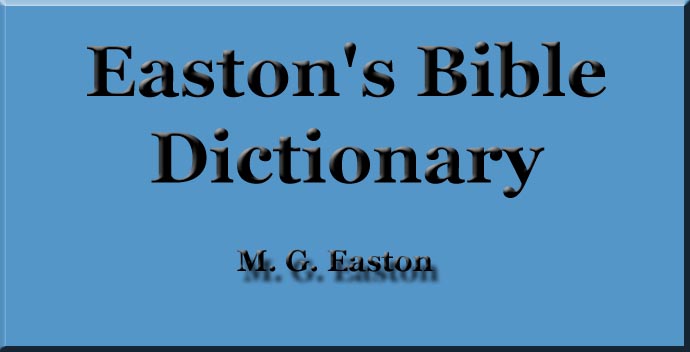

Onesiphorus Bringing profit, an Ephesian Christian who showed great kindness to Paul at Rome. He served him in many things, and had oft refreshed him. Paul expresses a warm interest in him and his household (Ti2 1:16; Ti2 4:19).
Onion The Israelites in the wilderness longed for the "onions and garlic of Egypt" (Num 11:5). This was the betsel of the Hebrews, the Allium cepe of botanists, of which it is said that there are some thirty or forty species now growing in Palestine. The onion is "the 'undivided' leek, unio , unus , one."
Ono A town of Benjamin, in the "plain of Ono" (Ch1 8:12; Ezr 2:33); now Kefr 'Ana , 5 miles north of Lydda, and about 30 miles north-west of Jerusalem. Not succeeding in their attempts to deter Nehemiah from rebuilding the walls of Jerusalem, Sanballat and Tobiah resorted to stratagem, and pretending to wish a conference with him, they invited him to meet them at Ono. Four times they made the request, and every time Nehemiah refused to come. Their object was to take him prisoner.
Onycha A nail; claw; hoof, (Heb. sheheleth ; Exo 30:34), a Latin word applied to the operculum, i.e., the claw or nail of the strombus or wing-shell, a univalve common in the Red Sea. The opercula of these shell-fish when burned emit a strong odour "like castoreum." This was an ingredient in the sacred incense.
Onyx A hail; claw; hoof, (Heb. shoham ), a precious stone adorning the breast-plate of the high priest and the shoulders of the ephod (Exo 28:9, Exo 28:20; Exo 35:27; Job 28:16; Eze 28:13). It was found in the land of Havilah (Gen 2:12). The LXX. translates the Hebrew word by smaragdos, an emerald. Some think that the sardonyx is meant. But the onyx differs from the sardonyx in this, that while the latter has two layers (black and white) the former has three (black, white, and red).
Open place Gen 38:14, Gen 38:21, mar. Enaim; the same probably as Enam (Jos 15:34), a city in the lowland or Shephelah.
Ophel Hill; mound, the long, narrow, rounded promontory on the southern slope of the temple hill, between the Tyropoeon and the Kedron valley (Ch2 27:3; Ch2 33:14; Neh 3:26, Neh 3:27). It was surrounded by a separate wall, and was occupied by the Nethinim after the Captivity. This wall has been discovered by the engineers of the Palestine Exploration Fund at the south-eastern angle of the temple area. It is 4 feet below the present surface. In Kg2 5:24 this word is translated "tower" (R.V., "hill"), denoting probably some eminence near Elisha's house.
Ophir (1.) One of the sons of Joktan (Gen 10:29). (2.) Some region famous for its gold (Kg1 9:28; Kg1 10:11; Kg1 22:48; Job 22:24; Job 28:16; Isa 13:12). In the LXX. this word is rendered "Sophir," and "Sofir" is the Coptic name for India, which is the rendering of the Arabic version, as also of the Vulgate. Josephus has identified it with the Golden Chersonese, i.e., the Malay peninsula. It is now generally identified with Abhira, at the mouth of the Indus. Much may be said, however, in favour of the opinion that it was somewhere in Arabia.
Ophni Mouldy, a city of Benjamin (Jos 18:24).
Ophrah (1.) A fawn. Ch1 4:14. Id. (2.) A city of Benjamin (Jos 18:23); probably identical with Ephron (Ch2 13:19) and Ephraim (Joh 11:54). (3.) "Of the Abi-ezrites." A city of Manasseh, 6 miles south-west of Shechem, the residence of Gideon (Jdg 6:11; Jdg 8:27, Jdg 8:32). After his great victory over the Midianites, he slew at this place the captive kings (Jdg 8:18). He then assumed the function of high priest, and sought to make Ophrah what Shiloh should have been. This thing "became a snare" to Gideon and his house. After Gideon's death his family resided here till they were put to death by Abimelech (Jdg 9:5). It is identified with Ferata.